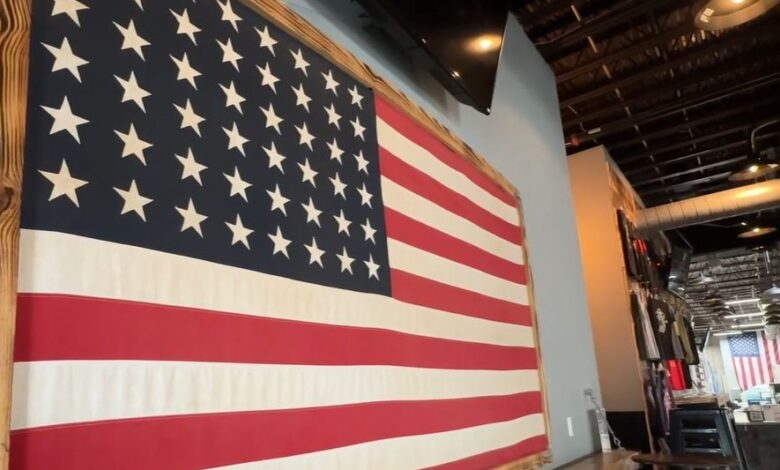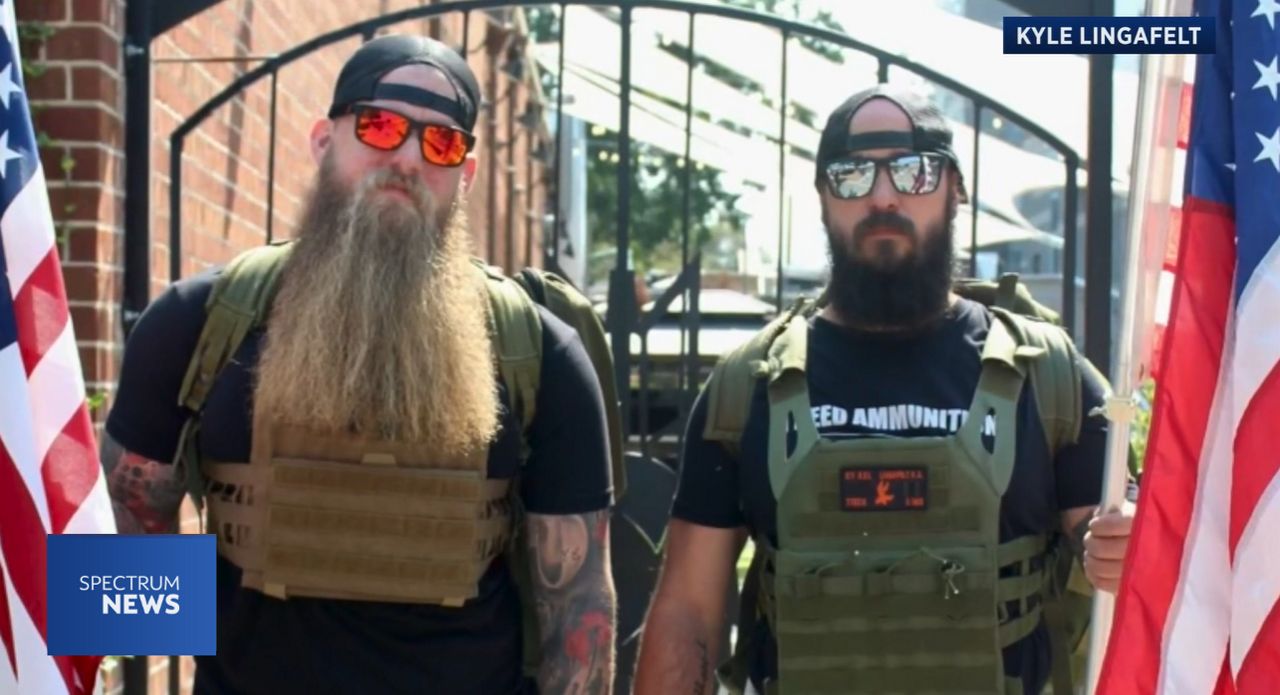PTSD impacting North Carolina veterans

KANNAPOLIS, N.C. — Veteran Affairs reports that PTSD has become slightly more common among veterans than civilians, and of the more than 730,000 veterans who live in North Carolina, less than half of them seek medical or mental health treatment.
Stefan Perrine and Kyle Lingafelt met in Los Angeles. They were both enrolled in an accelerated MBA program at the University of Southern California. The two learned that they had a lot in common, both in what they’ve done and seen, through their military careers.
“Kyle was an artillery officer, and I was airborne infantry. We should have very different jobs, but in 2012 and ’13, we had the same exact job. We were both doing maneuvers. There was no difference really,” Perrine said.
Perrine is a U.S. Army veteran and Lingafelt served in the United States Marine Corps. The two came to North Carolina in 2019, and opened up Old Armor Beer Company, located in downtown Kannapolis.

Stefan Perrine (left) and Kyle Lingafelt (right). (Photo courtesy of Kyle Lingafelt)
Despite all they have in common that make business run smoothly, they both struggle with post traumatic stress disorder.
“I mean, having deployed multiple times, you see multiple things,” Lingafelt said, and Perrine agrees.
“We were stopping Taliban from doing awful things to people. They are awful human beings,” Perrine said.
Post traumatic stress disorder, or PTSD, is a disorder where a person has difficulty recovering after experiencing or witnessing a terrifying event. Both veterans say that this diagnosis isn’t a one-size fits all, and while experiences may be the same, the way they handle trauma is different from person to person.
“Some people might go to drinking, some people might go to antidepressants, some people just need to be left alone, some people just need sleep,” Lingafelt said.
PTSD triggers can range from sights, smells, sounds, memories and even interactions. Lingafelt says far too often, PTSD and veterans are only considered around the 4th of July holiday.
“I think a common misconception is like ‘oh, the fireworks.’ Which has never been the case for me, and honestly I’ve talked to a ton of veterans who are like, ‘that doesn’t bother me.’ I don’t know why everyone makes a big deal of it. It might bother some, but the majority I’ve spoken to at least, that’s not one of them,” Lingafelt said.
Therapy and speaking to someone you trust are as close to a cure to PTSD as Perrine says a person can get.
“You’re going to deal with it for the rest of your life,” Perrine said.
While it took several years to seek help, and share his experiences that he’s struggled with, Lingafelt says he’s on the right track.
“I guess, better late than never, and getting help and knowing what helps and what hurts,” Lingafelt said.
Veterans Affairs reports that five out of every 100 adults suffer from PTSD in the United States. Lingafelt says he attends therapy once a week to work through and better understand his triggers and how to live with PTSD.
Veterans who are experiencing PTSD can seek help through Veterans Affairs. Civilians who are experiencing symptoms of PTSD undiagnosed, should speak with a primary care physician, both for proper diagnosis, medication and to develop a treatment plan.





